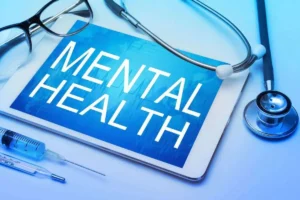It’s more important than ever to take care of your mental health in this fast-paced world full of worry, responsibilities, and constant digital noise. A lot of people put their physical health first by watching what they eat and working out, but mental health is just as important for a happy and successful life. Taking care of yourself every day in ways that create balance, lower stress, and boost emotional strength is one of the best ways to support mental health.
Making big changes or going to therapy can help with mental health, but they aren’t always necessary. Small, regular habits are often what make the biggest difference. This piece talks about some easy but effective daily habits that can help your mental health, emotional health, and overall well-being in the long run.
Self-care every day is important
Self-care is not a nice-to-have, it’s a must. Taking time to care for your mental and emotional needs makes your life better in general. Self-care on a regular basis can help control stress, keep you from getting burned out, make relationships better, and even make you more productive.
The World Health Organization (WHO) says that more than 970 million people around the world have mental illnesses. Anxiety and depression are two of the most common mental illnesses. You can control or even avoid them by doing helpful things every day. Self-care acts as a safe barrier that makes people mentally stronger and gives them the tools they need to deal with life’s difficulties better.
To begin, get enough sleep every night. Routine: Sleep is important for keeping your mind and emotions in check. The brain can’t work right without enough rest, which can make you irritable, make it hard to focus, and raise your risk of worry or sadness. Seven to nine hours of sleep each night is what most experts say people should get. Every day, even on the weekends, going to bed and getting up at the same time can help your body’s clock work better and make you feel better generally.
You can also get better, more restful sleep by limiting computer time before bed, staying away from caffeine in the evening, and making your bedroom quiet. When you make sleep a priority, your happiness, energy, and ability to concentrate will all get better during the day.
Mindfulness and stress-reduction techniques should be used
To be mindful, you must be present and observe your thoughts and feelings without judgment. It can be as easy as relaxing for five minutes every morning, taking a few deep breaths, or noticing what’s going on around you. Mindfulness can help you feel less anxious, calm down, and learn more about yourself.
Adding guided meditation, deep breathing exercises, or writing in a book to your daily habit can help you feel less stressed and more in control. When life feels crazy or too much, these habits can help you feel more stable.
Every day, move around
One of the best ways to improve mental health is to do physical activities. Endorphins are natural chemicals in the brain that make you feel better and lessen the pain you feel. Regular exercise also lowers stress, improves brain function, and lessens the effects of sadness.
You don’t have to go to the gym every day to get exercise. Going for a short walk, stretching, dancing to music, or working out at home can all help your mental health. Moving every day is good for your mental and physical health, so do it every day.
Stay in touch with helpful people
Having strong social ties is very important for mental health. Talking to trusted family or friends can help you feel better emotionally, make you feel less alone, and improve your bonds. Small exchanges, like a quick text or phone call, can make you feel better and more like you belong.
You can also help your mental health by setting limits with people or places that are bad for you. Having positive people around you makes room for personal growth and mental safety.
Balanced nutrition is good for your body
What you eat can have a big effect on how you feel. A healthy diet with whole foods, fruits, veggies, lean meats, and healthy fats helps the brain work well and keeps emotions stable. Too much sugar, coffee, and processed foods, on the other hand, can make you feel tired and change your mood.
Other important parts of healthy self-care are staying hydrated, drinking less alcohol, and not eating when you’re upset. When you take care of your body, your mind also feels better.
Stop too much digital stuff
Technology can be helpful, but spending too much time in front of a screen, especially on social media, can be bad for mental health. Constant alerts, comparing yourself to others, and too much news can make you feel anxious, distracted, and low in self-esteem.
Setting aside time during the day to not use a computer, especially in the morning and before bed, can help your brain recharge. To find balance and avoid getting too burned out from technology, try spending time outside, reading a book, or doing things that you can’t do online.
Daily Mental Health Habit Overview
| Habit | Benefit | Time Commitment |
|---|---|---|
| Regular sleep schedule | Improved mood, focus, emotional regulation | 7–9 hours nightly |
| Mindfulness or meditation | Reduced anxiety, increased awareness | 5–15 minutes daily |
| Daily physical activity | Boosts mood, lowers stress | 20–30 minutes |
| Healthy meals and hydration | Brain support, stable energy levels | Ongoing throughout day |
| Social connection | Emotional support, reduced loneliness | Varies by individual |
| Digital breaks | Less stress, clearer thinking | 30–60 minutes screen-free |
FAQs About Mental Health and Self-Care
How do I start building a self-care routine?
Start with one habit, such as getting consistent sleep or practicing five minutes of mindfulness. Gradually add more activities as they become part of your daily rhythm. Focus on progress, not perfection.
Can self-care replace therapy or medication?
Self-care supports mental health but is not a substitute for professional care. If you’re struggling with serious symptoms, consult a mental health professional. Self-care is most effective when combined with proper medical or therapeutic support.
What if I don’t have time for self-care?
Self-care doesn’t have to take hours. Even five to ten minutes of focused activity—like deep breathing or stretching—can help reduce stress. The goal is consistency, not duration.
How do I stay motivated to care for my mental health?
Track your progress, celebrate small wins, and remind yourself of how much better you feel when you take care of your mind and body. Motivation often grows as you begin to experience the benefits.
Is self-care the same for everyone?
No, self-care is personal. What relaxes or energizes one person might not work for another. Explore different activities to discover what nourishes your mental health best.
Conclusion: Build a Balanced Life One Habit at a Time
Mental health and self-care go hand in hand. You don’t need to overhaul your life or wait for the perfect time to start. Small, consistent actions—like getting enough sleep, practicing mindfulness, or staying connected with loved ones—can build a strong foundation for emotional resilience and daily well-being.
Start with one habit that feels achievable, then build from there. Each step you take brings you closer to a more balanced, peaceful, and healthy life.
References
- World Health Organization – Mental Health Overview
https://www.who.int/news-room/fact-sheets/detail/mental-health-strengthening-our-response - National Institute of Mental Health – Caring for Your Mental Health
https://www.nimh.nih.gov/health/topics/caring-for-your-mental-health - Mayo Clinic – Self-Care Tips to Boost Mental Health
https://www.mayoclinic.org/healthy-lifestyle/stress-management/in-depth/self-care/art-20047257




